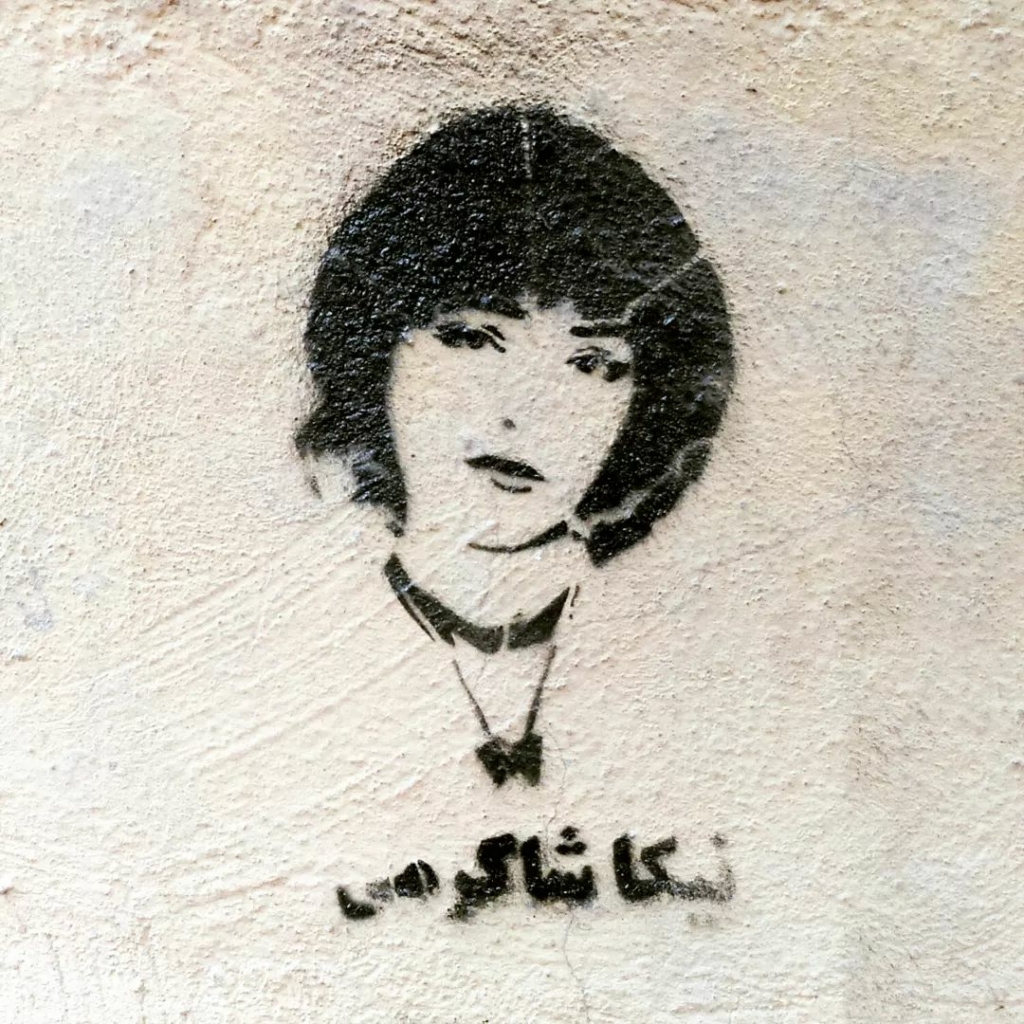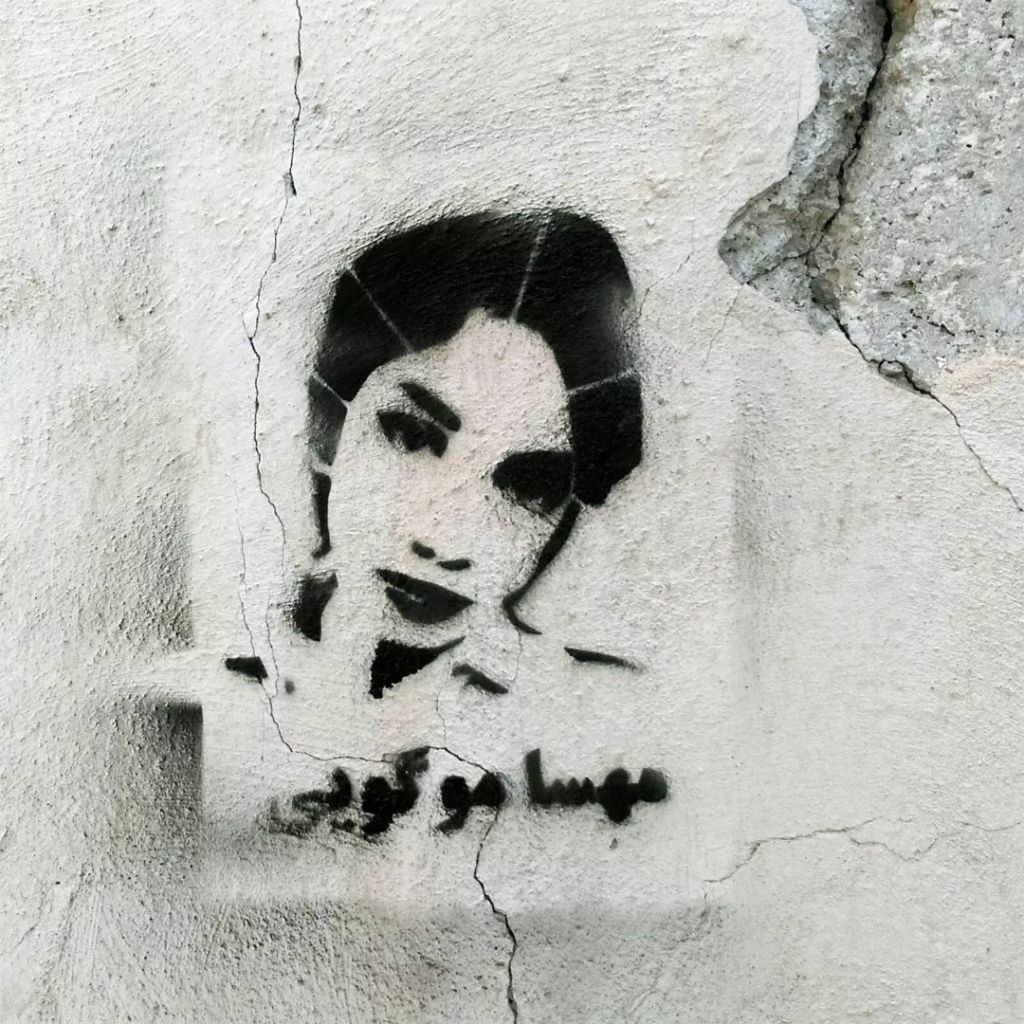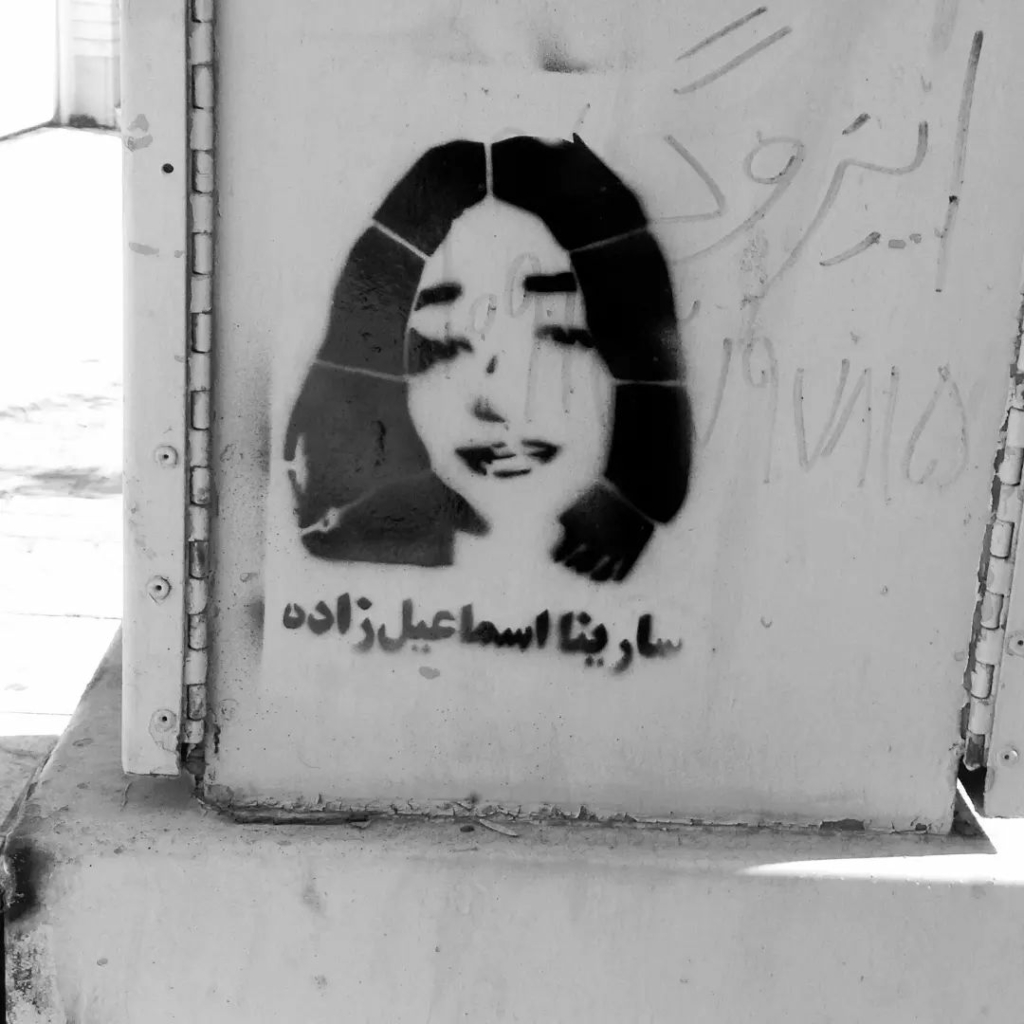Women Life Freedom – the revolutionary call of the Kurdish Women’s Movement
These three words – Women Life Freedom – have rung out across the globe thanks to the extraordinarily brave and inspiring women and men of Iran, and are being chanted in many different languages. But their deceptive simplicity has been allowed to obscure their full revolutionary meaning, just as their translation from the original Kurdish hides their origin in a movement that is criminalised across large parts of what likes to think of itself as the ‘free world’.
Jin Jiyan Azadi – the original Kurdish version – was first chanted by the Kurdish Women’s Movement on International Women’s Day in 2006 to give voice to their revolutionary philosophy. It has become the slogan of the movement, especially in Rojava, which describes itself as a women’s revolution. Jina (Mahsa) Amini, whose murder at the hands of Iran’s ‘morality police’ triggered Iran’s uprising, was Kurdish, and Rojhelat – East or Iranian Kurdistan – was the epicentre of the protests that are now developing into a revolution. Jina was her Kurdish name, which was not allowed to be officially recognised, and the brutality of her treatment may have been enhanced because she was Kurdish and not Persian.

The slogan, Women Life Freedom, has spread outwards with the protests, but what does it mean to those who created it? Through internal struggle and debate, and the powerful words of its undisputed leader, Abdullah Öcalan, the Kurdish Freedom Movement has put women’s freedom at its core. This is a very different sort of freedom from that envisaged by liberal feminism, which worries about individual success. The Movement wants nothing less than fundamental social change. Their radical feminism does not demand a place for women in our hierarchical ‘civilisation’, but an end to hierarchy itself, and its replacement with those mutually supporting community structures that have been increasingly pushed to the margins. When it seeks to end toxic masculinity, it also challenges the structures of dominance and power that have come to be taken for granted at all levels – from family roles to the state. It puts forward a different way of thinking about the world, where wellbeing is valued over financial wealth, and mutual aid over competition, and where human society is seen as part of the natural world and not it’s master.
Of course, we cannot expect most of those who are now repeating this powerful phrase to realise all that it stands for. This is true in Iran itself, where political discussion has been severely restricted, as well as in the liberal democracies where the phrase has received an enthusiastic echo. There have even been reports of Iranian students twinning it with a call of Men Homeland Prosperity, effectively negating the original meaning – a development which seems to have been pushed by conservative monarchists and repeated through ignorant naivety. In the West, journal articles have been written pontificating on the slogan’s origins without once mentioning the Kurdish movement; and it has been adopted as a useful marker for displaying liberal credentials by both big business and politicians. The luxury fashion house, Balenciaga, cleared its Instagram feed to replace it with the slogan in English and in Persian, and politicians have posed holding the words on placards.

Some of those politicians are involved in governments that persecute the Kurdish Freedom Movement and shut down Kurdish voices. Turkey has persuaded many states to put the Kurdistan Workers’ Party, the PKK, on their terrorism lists. This is a political decision not a legal one. When Belgium’s highest court ruled that the PKK was actually a non-state actor involved in a war, and not a terrorist organisation, the Belgian government responded that this made no difference. At the time that the European Union listed them, the PKK was in the middle of a long ceasefire and calling for peace negotiations – as they have done for more than 30 years. Terrorist listing is used to criminalise all Kurdish political activity, and Kurds in the diaspora have become used to seeing their homes and community centres raided.
Turkey is able to wield its influence because of its strategic position at the junction of ‘East’’ and ‘West’, and also because Europe relies on them to act as the European Union’s border guards and keep out refugees and migrants. Other states do not want to upset them. On top of this, liberal democracies belie their name when it comes to allowing breathing space to movements that challenge their view of the world. In their relations with the Kurds, the terrorist designation of the PKK makes it easy for western governments to be neither liberal nor democratic.

Last week, a leading scholar and activist in the Kurdistan Women’s Movement, Nagihan Akarsel, was assassinated outside her home in the Kurdistan Region of Iraq. No-one doubts that the murder was ordered by the Turkish Security Services. The Turkish government has made little comment about events in Iran, but this assassination makes clear their contempt for Kurdish women’s freedom. Despite all their statements of solidarity with the people of Iran, Western governments will continue to work with – and sell arms to – Turkey.
The Kurdish Freedom Movement stresses that its ideas for a better world are for everyone. They are pleased to see their call of Jin Jiyan Azadi being taken up by those struggling against the regime in Iran and to hear it repeated in different languages on the streets of Europe and beyond. But this will mean little if it is allowed to be emptied of content and if the people who created it continue to be written out and persecuted.
[Image credit: Stencils seen in Iran featuring the names and faces of women murdered by cops during the ongoing protests following the death of Jina Mahsa Amini, a 22 year old woman who was killed by the morality police after being arrested and beaten for supposedly incorrectly wearing a hijab]

Thanks for this, really useful and interesting
I was one of those ignorant of its true meaning. Thank you for such an informative piece.
I can not believe that in 2022 woman are still subjected to such brutality. We all celebrated when apartheid ended yet governments just look the other way when it’s woman who are being segregated and enslaved in the name of religion.
I for one will be standing in solidarity with the KFM. They are putting their lives on the line for freedom. What will we sacrifice to gain ours?
Thanks Sarah. Articles like this are at least educating people particularly on the hypocrisy of the west.
‘Their radical feminism does not demand a place for women in our hierarchical ‘civilisation’, but an end to hierarchy itself, and its replacement with those mutually supporting community structures that have been increasingly pushed to the margins.’
Great stuff!
I’m also excited by the ideological shift Abdullah Öcalan has undergone since his exposure to Western social theorists such as Murray Bookchin, Immanuel Wallerstein, and Hannah Arendt following his incarceration, which has led him to abandon the old Stalinist beliefs that got the PKK into so much lasting trouble and brought it into such lasting disrepute.
I’m particularly impressed by the confederal system of democratic self-organisation that his theory of human flourishing proposes, which is based on the principles of autonomy, direct democracy, ecology, feminism, multiculturalism, self-defence, self-governance, and elements of a cooperative economy. Öcalan presents his system as a political solution to Kurdish national aspirations and as a route to freedom and democratisation for people around the world.
While the liberation struggle of the PKK was guided originally and up to the time of his arrest by the prospect of creating a Kurdish nation-state, Öcalan became disillusioned with the nation-state model and state socialism. He has since reformulated the political objectives of the Kurdish liberation movement, abandoning the old statist and centralising socialist project for a radical and renewed proposal for democratic-libertarian socialism that no longer aims at building an independent state separate from Turkey, but at establishing an autonomous, democratic and decentralised entity.
Although Öcalan still sees the predation of capitalism as responsible for all the social and environmental injustice in the world, he also now rejects the authoritarianism and bureaucracy of state socialism. He defends instead what he calls a ‘non-state political administration or stateless democracy’, which provides a framework for the autonomous organisation of every community or place or interest through direct participatory decision-making in workplace and neighbourhood councils, municipal councils, local parliaments, and larger congresses, where citizens themselves are the agents of government, allowing individuals and communities to exercise a real influence over their common environment and activities.
Although it presents itself as a model opposed to the nation-state, Öcalan’s theory admits the possibility, under specific circumstances, of peaceful coexistence of democratic self-governance and nationality, as long as there is no intervention by the state in the central issues of self-government or attempts at cultural privileging or assimilation. However, while it was initially theorised as a new social and ideological basis for the Kurdish liberation movement, Öcalan’s Rojava is now presented as an anti-nationalist, multi-ethnic and internationalist movement, inspired by the struggle of women within the traditional patriarchy of the PKK.
Following Derrida, Öcalan sees patriarchy and all other forms of privileging as an ideological product of the national state and power, which are themselves ideologisations of capitalist relations of production. This is why he makes feminism one of its central pillars of his theory. His theory itself is supposed to function, like Derrida’s deconstruction, as a tool we can employ to dismantle the institutional and psychological relations of power currently established in capitalist societies towards ensuring that women (and other normally marginalised/dispossessed/inferiorised categories of people) have a vital and equal role to that of men (and other normally privileged categories of people) at all levels of political organisation and decision-making.
For anyone who is interested in Öcalan’s theory, its general outline was presented through his Declaration of Democratic Confederalism in Kurdistan in March 2005, and in much more detail in his four volume Manifesto of Democratic Civilization. His Declaration was adopted by the PKK immediately after it was released and began the new work of independence by organising clandestine assemblies in Turkey, Syria, and Iraq, which resulted in the creation of the Kurdistan Communities Union.
The first chance to implement the Declaration came when civil war broke out in Syria, when the Democratic Union Party (PYD) declared the autonomy of three cantons in Syrian Kurdistan that eventually grew into the Autonomous Administration of North and East Syria, a.k.a. Rojava.
Öcalan presents his system primarily as a political solution to Kurdish national aspirations. But he also presents it as a route to freedom and democratisation for people everywhere. It seeks to build democracy and self-governance from the bottom up, through community development, rather than from the top down, through nationalism. It would be nice to think it’s a route that people in these islands could take to independence, but it’s difficult to see this happening, given the hegemony that nationalism has exercised for so long over our cognitive behaviour as Europeans. We just can’t imagine independence outside the frame of national sovereignty and the nationalisation of government.
A rather doddering Michael Palin travels the route of the rivers Tigris and Euphrates from Turkey to Southern Iraq in this Channel 5 documentary series, spending his first episode in Kurdish areas: https://www.channel5.com/show/michael-palin-into-iraq
He is interested in the virtual absence of women in public spaces as he travels further south through Iraq. I guess he is dead-panning when he says he doesn’t think we have any Saddam-like palaces back home. Anyway, he takes part in a Kurdish Spring festival on a mountain. He does finally end up in an Iraqi school for gifted children which is mixed girls and boys. Is that the way the authorities see the wind is blowing? Perhaps it is simply a recognition that you cannot develop a competitive knowledge economy anywhere without mobilising a highly-trained female workforce.
Marjane Satrapi, author of Persepolis, says that boys were not prominent amongst the ranks of the (I guess socialist wing of the) Iranian Revolution her graphic novel covered, and she sees their current participation as progress. Well, not if they hog the credit for any changes or pigback for more patriarchy, I guess.